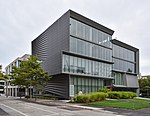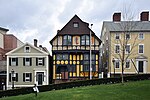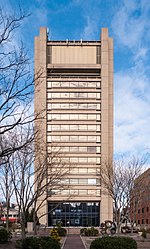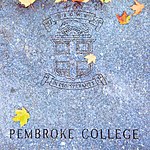Annenberg Institute at Brown University

The Annenberg Institute for School Reform at Brown University is an education research and reform institute at Brown University. Its mission is to "understand the causes and consequences of educational inequality and to reduce this inequality through innovative, multidimensional, and research-informed approaches." The institute was established in October 1993 as the National Institute for School Reform and renamed the Annenberg Institute for School Reform in December 1993 following a gift from the Annenberg Foundation.Prominent educational reformer Theodore R. Sizer worked to found the institute and served as its inaugural director. Since 2018 the institute has been directed by Susanna Loeb.
Excerpt from the Wikipedia article Annenberg Institute at Brown University (License: CC BY-SA 3.0, Authors, Images).Annenberg Institute at Brown University
Angell Street, Providence
Geographical coordinates (GPS) Address Nearby Places Show on map
Geographical coordinates (GPS)
| Latitude | Longitude |
|---|---|
| N 41.8282 ° | E -71.401 ° |
Address
164 Angel (Brown Office Building)
Angell Street 164-176
02912 Providence
Rhode Island, United States
Open on Google Maps









